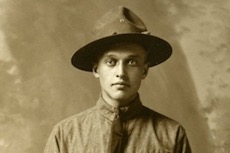I find it amazing, with six billion people in the world, that there is still room for secrets…that there is sufficient privacy for things no one else ever knows, or sees. Yet we all have our secrets, great or small, which we guard zealously.
I have one or two which I would/can never share, but I came across a couple I’ve been holding onto for 60 years or so that I might as well ‘fess up to.
Ever since a little girl jumped on and broke my leg when I was five, I have gone to great lengths to avoid anything that might result in physical pain. I have also mentioned that as a motor moron, I have always loathed and avoided sports, probably partly due to the same fear of being hurt.
As a result, I dreaded gym class. When my parents bought a new house that necessitated my changing junior high schools I determined that I would do anything I possibly could to avoid having to take gym. On about the third day of gym class, I reported to the coach that I had couldn’t find one of my gym shoes. He told me I had to go find it and not to come back until I did. I took him at his word and never went back. I’m can’t remember what I’d do during the time I was supposed to be in gym, and I have no idea how I possibly got by with it, but I did. I never told anyone about it; certainly not my parents, not even my friends.
And when I moved from junior high to high school, I had to come up with another excuse to avoid taking gym. The plan I came up with was actually pretty shameful and I’m still rather embarrassed by it today. And on reflection how I ever got away with it is still a mystery.
I went to my family doctor’s office and told his nurse that I was corresponding with a pen-pal in England…which I was…and that since England had socialized medicine they were unfamiliar with the American system. I asked if I could have a couple sheets of Dr. Edson’s stationery and envelopes on which to write my friend.
She gave them to me, and I took them home and composed a letter excusing Roger from gym class on the grounds that he had a rare form of bone cancer. I’m sure my “careful” forgery was patently obvious to anyone who even glanced at it, but for some reason, when I handed it to the school nurse, she accepted it, and I spent the hours I should have been in gym in the nurse’s office.
How did I come up with these things? How did I get away with it? Who knows. And again in retrospect that I would have used cancer as an excuse to get out of gym is shameful.
But again, I never told a single living soul until this moment. I think I was terrified that if anyone found out what I’d done, they would demand my high school diploma back. I’m glad they didn’t.
My secrets, compared with those other people carry around with them, are totally insignificant, but it still amazes me to think of how stupid/naive we all can be, and how capricious life is in calling some of us out for a minor infraction while letting others sail through life on a sea of lies.
----------
This blog is from Dorien's ebook of blogs, Short Circuits, available from UntreedReads.com and Amazon.com; it's also available as an audio book from Amazon/Audible.com. You can find information about Dorien's books at his web site: www.doriengrey.com:





















